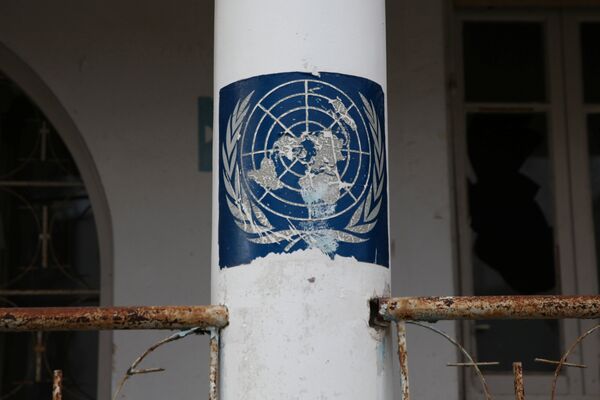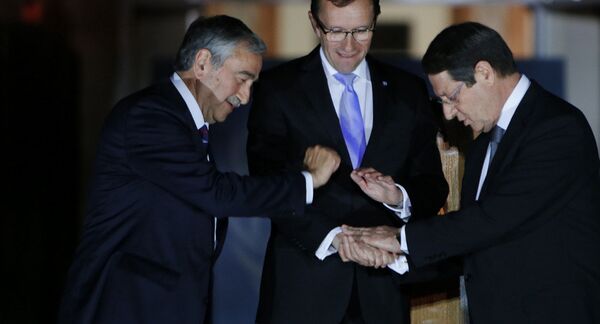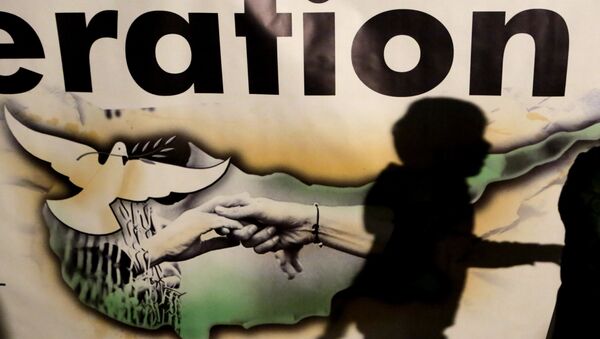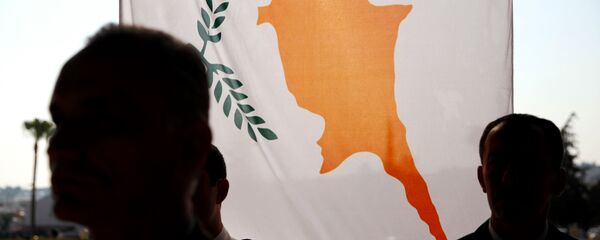Mustafa Akinci spoke to journalists following a four-hour meeting with Greek Cypriot leader Nicos Anastasiades on territorial adjustments necessary for an anticipated two-state federation. The meeting took place at the UN Protected Area in the neutral 'buffer zone' between the two states, and was arranged by Espen Barth Eide, UN Secretary Generas Special adviser on Cyprus.

The President said the pair will attend the Geneva summit in a "positive" mood, and "constructive" atmosphere.
Nonetheless, he said 2017 could be a distressing year if a resolution to the issue is not found, and that a number of issues, including the Greek Cypriot election in February 2018 could delay negotiations for another 18 months at least. Further years spent in isolated disagreement would, he said "deepen the separation and end the solution efforts."
While he acknowledged that every issue related to the dispute would likely not be resolved by the conclusion of the summit on January 12, "great success" would be achieved if the result is satisfactory for both sides on issues such as property, the rotating presidency, Turkish Cypriot influence in decision making, territory and security.
#HappyNewYear my friends 😎An unpredictable 2017 arriving 🤔
— Marios Karatzias (@MariosKaratzias) December 31, 2016
Best wishes for a reunified #Cyprus!
Too small to be devided big enough for all pic.twitter.com/HYuwB60zGw
If the summit is successful and concord is achieved on key issues, negotiators will agree a date for a final summit between the Turkish and Greek Cypriot leaders, and representatives of Greece, Turkey and the United Kingdom, the three 'guarantors' of Cyprian security and territorial integrity. If these talks are successful too, Akinci foresees a referendum being held in Cyprus as early as "mid-2017."

However, the deal that will be considered at the Geneva summit may well be rejected by voters on both sides of the island's divide. Speaking to Sputnik, Professor Andreas Theophanous, President of the Cyprus Center for European & International Affairs, said the majority of citizens were extremely skeptical of its contents.
"The proposal would create three separate governments of equal standing — southern, northern and central. I find it impossible to imagine how such a governmental structure could work in the Eurozone. Cypriots are unimpressed with the deal, with most thinking it will just make the situation worse — that's why the march attracted so few people," Professor Theophanous told Sputnik.
Turkey used this as warrant for its 1974 invasion of the north of the island, which divided the country into its present form. Turkey has continued to occupy 40% the country ever since, declaring a breakaway state in 1983; its independence has only ever been recognized by Turkey.
When Cyprus joined the European Union in 2004, full membership benefits were only extended to the south. The prospect of continuing Turkish military presence in Cyprus post-reunification is a significant impediment to reunification.



